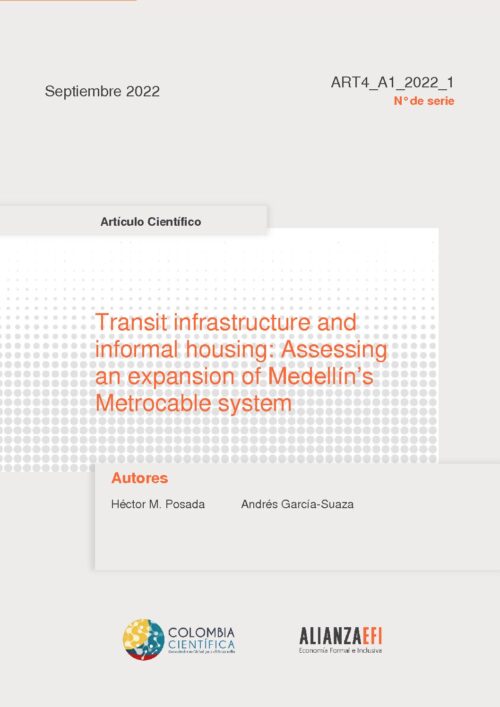Transportation policies have a valuable influence on the allocation of resources within cities. Therefore, investigating the impacts of transit interventions is relevant, especially in developing countries where informal housing is highly prevalent and spatial disparities are noteworthy. We study the impact of a transit expansion of the Metrocable system in Medellín, Colombia, as a natural scenario to understand the causal links between lowering access costs and informal housing. Using a difference-in-difference identification strategy, we estimate that the expansion of Line H of Metrocable reduces informal housing up to 15 percentage points. We also show that the magnitude of the effect depends on the distance to the intervention. We find that the labor market plays a crucial role when exploring potential mechanisms mediating the analyzed causal relation.
Autores:
- Andrés García-Suaza
- Héctor M. Posada
Palabras clave:
- Colombia
- Informal housing
- Informal labor market
- Land value
- Transportation cost
Categorías:
- Proyecto 4
- Publicación
